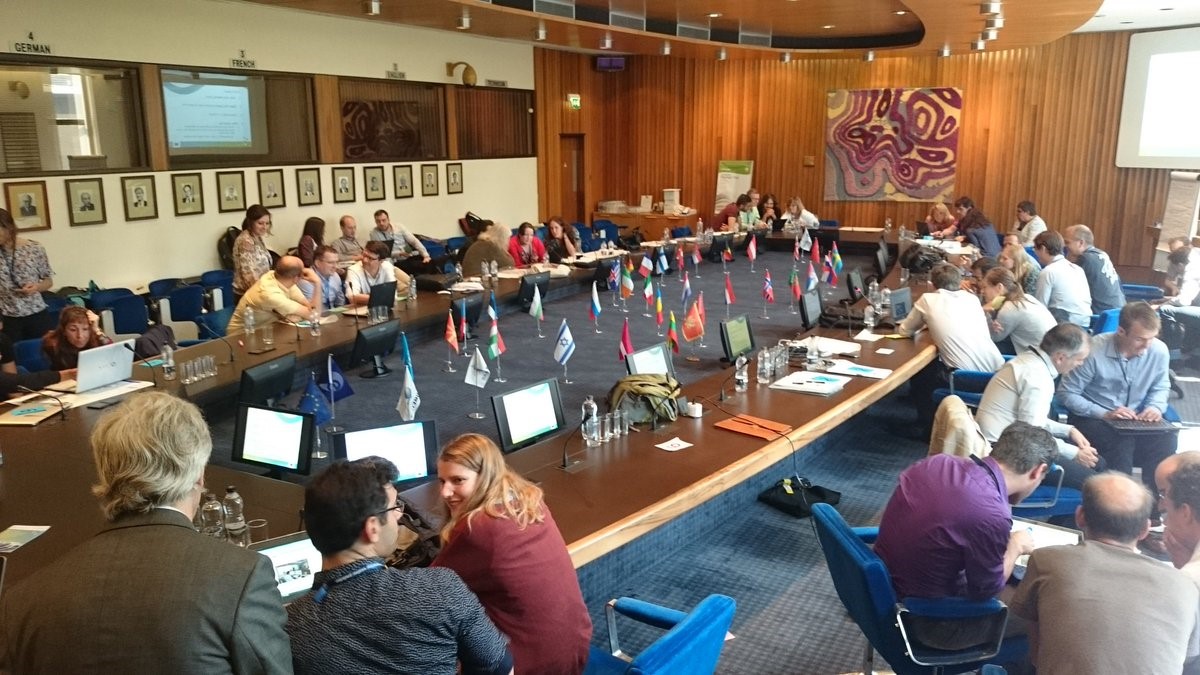The HEPEX (Hydrological Ensemble Prediction Experiment) community is a network of scientists and practitioners who aim to promote and develop ensemble hydrological forecasting. ECMWF has been a driving force behind HEPEX from the start and is involved in a range of HEPEX activities, including the development of serious games. These are a great teaching tool as they can convey what is involved in complex real-world decisions in an interactive setup and with an easy-to-understand message. They are designed to promote the use of probabilistic forecasts in decision-making for applications such as reservoir management and flood protection.

HEPEX games have been developed by scientists from ECMWF, the University of Reading, the French Institut national de recherche en sciences et technologies pour l'environnement et l'agriculture (Irstea), the Red Cross/Red Crescent Climate Centre and the IHE Delft Institute for Water Education, among others. They have been played at European Geosciences Union General Assemblies as well as workshops and training courses at ECMWF. Below we present two games developed in 2015 and 2017. For a full list of games, visit: https://hepex.irstea.fr/resources/.
How much are you willing to pay for a forecast?
The 2015 game ‘How much are you willing to pay for a forecast?’ was designed to look at the perceived value of probabilistic forecasts by decision-makers for flood protection.
In this game, the participants are given probabilistic forecasts of the river level, based on which they have to decide whether to buy flood protection for an imaginary town. The forecasts are of varied quality (positively or negatively biased, or unbiased) and each participant is randomly given a certain forecast quality type, without their knowledge. The participants’ willingness to pay for probabilistic forecasts is also evaluated during the game through an auction, as forecasts in a second part of the game are no longer given out but sold, and in a limited number. To mention a few key results from the 129 collected game sheets (more results can be found in an article by Arnal et al. in Hydrol. Earth Syst. Sci., 2016, doi:10.5194/hess-20-3109-2016):
- The perceived risk (driven by the river flood frequency, the initial river level and the proximity of the predicted river level to the flood threshold) as well as the perceived forecast bias influenced the participants’ use of the forecasts (i.e. the percentile of the forecast on which decisions were based).
- The participants’ willingness to pay for probabilistic forecasts was strongly linked to their perception of the quality of the forecasts. Interestingly, the participants’ perception of their own performance as decision-makers was also highly correlated with their perception of the forecasts’ quality (perceptions evaluated with a questionnaire at the end of the game).
- Overall, this game showed that the use and perceived value of probabilistic forecasts for decision-making in a risk-based context is not straightforward. More work is needed to provide comprehensive guidance on the use of probabilistic information for decision-making, by communicating the quality as well as the relevance and long-term economic benefit of probabilistic forecasts for improved decisions.
Pathways to running a flood forecasting centre: an adventure game
The 2017 game ‘Pathways to running a flood forecasting centre: an adventure game’ aims to explore the decision-making process involved in running a flood forecasting centre.
In this game, the participant is the head of a flood forecasting centre and has to protect a town against floods with the help of two teams: forecasters and the flood incident response team. The participant can interact with the teams (such as to get advice and information or ask them to perform certain actions, e.g. installing flood defences or improving the forecast) and access probabilistic forecasts of the river level. The participant is ultimately responsible for all actions and their consequences, which will impact her/his budget and reputation.
The results of this game will be reported in a HEPEX blog post as well as in a scientific article. This game is available to play online at: https://goo.gl/bfZISB.

